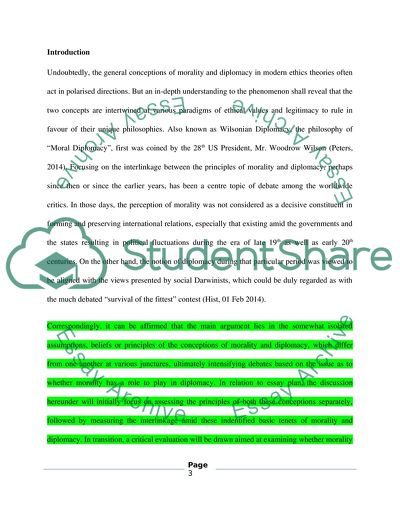Cite this document
(If There Is a Role for Morality in Diplomacy Report Example | Topics and Well Written Essays - 2250 words, n.d.)
If There Is a Role for Morality in Diplomacy Report Example | Topics and Well Written Essays - 2250 words. https://studentshare.org/social-science/1807144-discuss-if-there-is-a-role-for-morality-in-diplomacy
If There Is a Role for Morality in Diplomacy Report Example | Topics and Well Written Essays - 2250 words. https://studentshare.org/social-science/1807144-discuss-if-there-is-a-role-for-morality-in-diplomacy
(If There Is a Role for Morality in Diplomacy Report Example | Topics and Well Written Essays - 2250 Words)
If There Is a Role for Morality in Diplomacy Report Example | Topics and Well Written Essays - 2250 Words. https://studentshare.org/social-science/1807144-discuss-if-there-is-a-role-for-morality-in-diplomacy.
If There Is a Role for Morality in Diplomacy Report Example | Topics and Well Written Essays - 2250 Words. https://studentshare.org/social-science/1807144-discuss-if-there-is-a-role-for-morality-in-diplomacy.
“If There Is a Role for Morality in Diplomacy Report Example | Topics and Well Written Essays - 2250 Words”. https://studentshare.org/social-science/1807144-discuss-if-there-is-a-role-for-morality-in-diplomacy.


